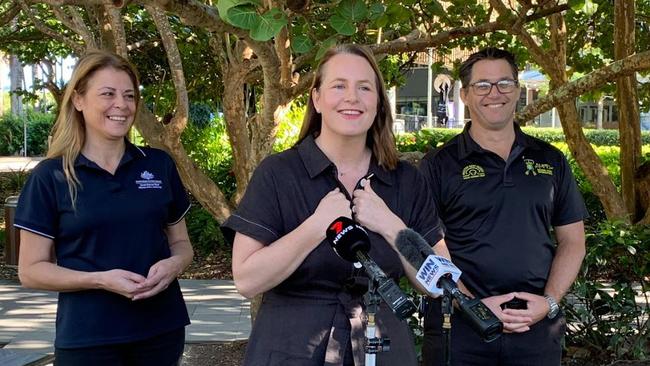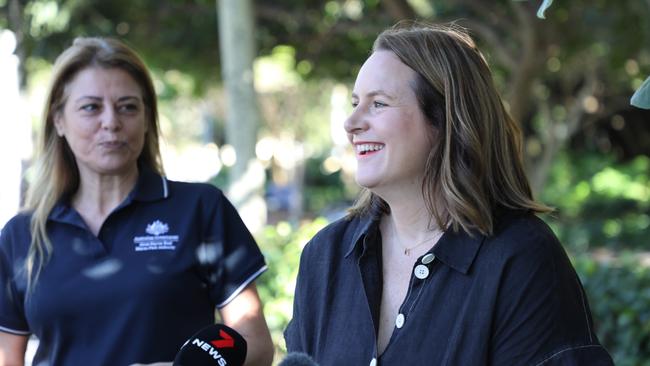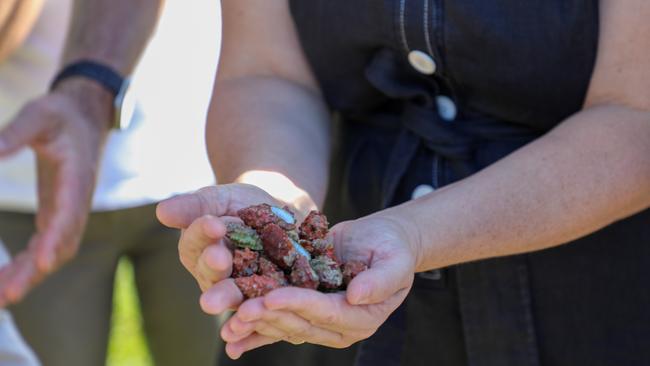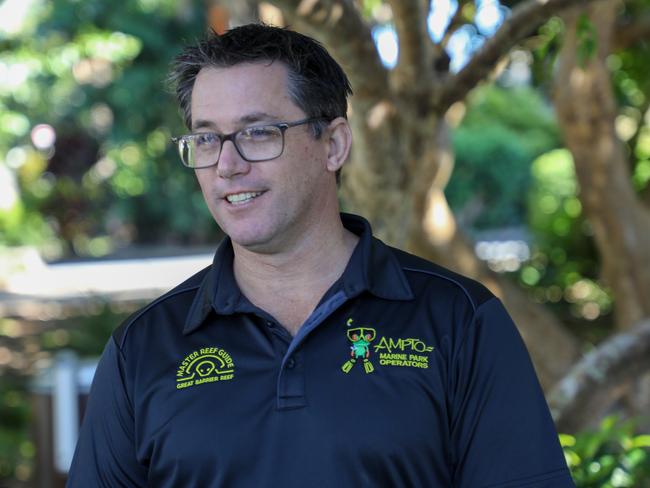Federal Government’s $150m GBR water quality project could be implemented within 12 months
More than 72,000 destructive Great Barrier Reef pests have been removed under an ongoing reef protection program, and another $150m conservation project could roll out soon.

Cairns
Don't miss out on the headlines from Cairns. Followed categories will be added to My News.
A $150m commitment to improving the Great Barrier Reef’s water quality could result in programs being rolled out from as early as the start of next year, according to Senator Nita Green.
Ms Green gave the update as she also revealed the beneficial outcomes of the government’s ongoing $15.1m Tourism Reef Protection Initiative.
Her comments come shortly after the UNESCO decided not to list the reef as “in danger”, but local tourism operators have urged the government not to take its foot off the reef conservation accelerator and increase its action against land clearing and pollutant run-off.
“We made sure we committed $150m for water quality programs, we’ve got to get that money out the door,” Ms Green said.

“We’re working on program design now … we want to make sure that we have the best science so the program is designed in a way that is actually going to deliver water quality results … we don’t want to have a program where we just go out and deliver education.
“I’m hoping we will see (water quality) programs roll out at least at the start of next year.”
The reef protection initiative began in October and will continue to “the middle of 2024”.
It involves 26 tourism operators conducting reef health surveys and passing on the information to reef management organisations, who then take action against threats.
“The work our tourism operators have been doing … has led to some fantastic results. We’ve seen more than 200 reefs surveyed, 500 crown-of-thorns starfish removed … and 70,000 Drupella snails removed from the Great Barrier Reef,” Ms Green said.

“Drupella snails seem innocuous … these snails eat coral and damage it severely.
“One of the benefits of this program is tourism operators know their reefs … better than anyone else, and they know when they change and they know how to protect them.”
Gareth Phillips, CEO of the Association of Marine Park Tourism Operators, said the UNESCO decision matched local industry consensus on the Great Barrier Reef’s health but said he was wary of an approaching El Nino summer, which typically brings warmer oceanic temperatures and a higher risk of coral bleaching events.
“The reef has been in a recovery phase for a number of years now. The consensus from tourism operators is the reef is in a really good condition now, but that doesn’t mean we need to relax,” Mr Phillips said.

“Operators are always concerned about future bleaching events … we’ll scale up our monitoring and reporting.”
Mr Phillips said the reef protection initiative was an effective way of tethering marine conservation to a healthy tourism industry.
“The tourism industry accesses the reef every single day. No other sector spends as much time on the reef,” he said.
“That strengthens the scientific knowledge which strengthens how we make decisions in managing the reef.
“If we don’t have tourists, we’re not out on the water.”
More Coverage
Originally published as Federal Government’s $150m GBR water quality project could be implemented within 12 months




